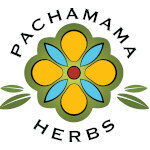Categories
 Jewellery
Jewellery
 Herbs
Herbs
 Incenses
Incenses
 Raw & Vegan Food
Raw & Vegan Food
 Accessories, gifts & decorations
Accessories, gifts & decorations
 Musical instruments
Musical instruments
 Art
Art
Subscribe to Our Newsletter
The word copal is derived from the Aztec copalcoahuitl, which refers to the tree producing the resin, or the resin itself. Kopal was already considered the most important incense and sacrifice in pre-Columbian times, the Mayans considered it the brain of heaven, the food of the gods, and it could not be missed in any religious, magical or healing ceremony.
Its cleansing and protective function is also important; during the ceremonial consumption of psychedelic mushrooms or shamanic drinking of ayahuasca, the place, space, objects and people who go through this ritual are always cleansed. The local Indians believe that its smoke can drive away evil spirits, demons and witches and ensure a happy ceremony.
In Mexico, it is burned to clean and protect home from all negative influences, disasters and unfortunate events. Sick people are often incense treated because the smoke can drive away the spirits of the disease and help a lot in the healing process.
Ritual use
The Mexican copal is an important part of rituals – a rising smoke and burnig fire transforms the essence of things, representing the bonding, communication between heaven and earth. Copal and his scent are compared to a soul that ascends to God’s truth.
A mediator between heaven and earth
Mexican copal is considered to be the mediator between heaven and earth, between matter and spirit, between the living and the dead, a human bond with the creator of Father and Mother, an element that transmits prayers to the divine realm through smoke.
Copal is highly valued for its mystical and ritual uses and is even healing. In the pre-Hispanic times, the taxes were collected partly in copal.
We recommend also
Product Inquiry
Do you have any question about this product?
Related products
-
Incenses
White Sage Incense Bundle, size S – 11 CM, 30-40 G
€ 6.00 – € 48.00 incl. VATSelect options This product has multiple variants. The options may be chosen on the product pageAmerican Indians consider it one of the most sacred herbs and a very effective medicine. It is valued mainly for its cleansing effects and is used as an incense. Sage cleans rooms and various objects very well, but it can also heal our souls and help us find a way in our own lives. The …

 Pendants and Necklaces
Pendants and Necklaces Aphrodisiac (promoting sexual arousal and libido)
Aphrodisiac (promoting sexual arousal and libido) Amazonian plants
Amazonian plants CBD
CBD Dream Herbs
Dream Herbs Extracts
Extracts Iboga and Ibogaine extract
Iboga and Ibogaine extract Kratom
Kratom Ambil (Tabacco Paste)
Ambil (Tabacco Paste) Cigars
Cigars Rapé (Tobacco Snuff)
Rapé (Tobacco Snuff) Applicators for Rapé
Applicators for Rapé Kuripe
Kuripe Rapé blends
Rapé blends Rapé samples
Rapé samples Sananga Eye Drops
Sananga Eye Drops Seeds
Seeds Cocoa (Cacao)
Cocoa (Cacao) Supplements
Supplements Teas
Teas For animals
For animals Medicinal & Other
Medicinal & Other Incense Accessories
Incense Accessories Incense Cones
Incense Cones Stands and Burners
Stands and Burners Herbs (White Sage etc.)
Herbs (White Sage etc.) Sticks
Sticks Resin
Resin Wood
Wood Coffee
Coffee Cocoa (Pure Cacao)
Cocoa (Pure Cacao) Bags
Bags Digital scales
Digital scales Dishes and Water Revitalization
Dishes and Water Revitalization Home and Living
Home and Living Yoga
Yoga Meditation
Meditation Pendulums
Pendulums Digital Scales
Digital Scales Sacred Geometry Decorations
Sacred Geometry Decorations Wind Chimes
Wind Chimes Maracas (Rattles)
Maracas (Rattles) Prints on canvas
Prints on canvas Paintings
Paintings Postcards
Postcards



